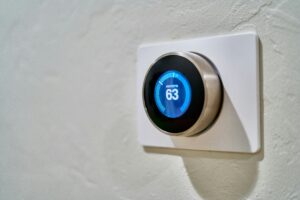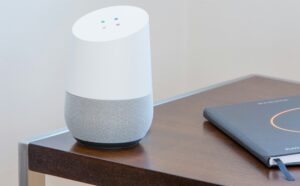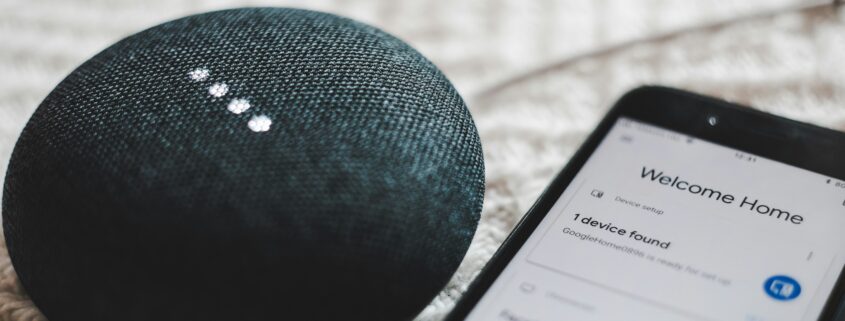The Rise of Smart Homes
Smart Homes. In recent years, technology has permeated almost every aspect of our lives, transforming the way we communicate, work, and even how we live in our homes. Among the most exciting developments in this realm is the emergence of smart homes. Imagine a living space where everyday tasks are automated, energy is conserved, and security is enhanced. All at the touch of a button or even a voice command. This is the promise of smart homes, and it’s a reality that is rapidly unfolding before our eyes.
What is a Smart Home?
A smart home is equipped with a network of interconnected devices and sensors that automate and enhance various aspects of domestic life. These devices can range from simple smart bulbs and thermostats to more complex systems that control everything from security cameras to kitchen appliances. The key to a smart home lies in its ability to collect data, analyze patterns, and respond intelligently to the needs and preferences of its inhabitants.
Key Components of Smart Homes
Smart Hubs: These serve as the central control units of a smart home, allowing users to manage and coordinate all connected devices from a single interface. Popular examples include Amazon Echo with Alexa, Google Home, and Apple HomeKit.
Smart Lighting: LED bulbs equipped with wireless connectivity can be controlled remotely via smartphone apps or voice commands. They often come with features such as dimming, color-changing capabilities, and scheduling for energy efficiency.
Smart Thermostats: These devices learn your heating and cooling preferences over time and adjust the temperature accordingly, helping to save energy and reduce utility bills.
Smart Security Systems: From video doorbells and motion sensors to smart locks and security cameras, these systems provide peace of mind by allowing homeowners to monitor their property remotely and receive instant alerts in case of suspicious activity.
Smart Appliances: Imagine being able to preheat your oven on your way home from work or receive notifications when your laundry is done. Smart appliances like refrigerators, ovens, washing machines, and even coffee makers offer convenience and efficiency like never before.

Benefits of Smart Homes
Convenience: One of the most significant advantages of smart homes is the convenience they offer. Whether it’s adjusting the thermostat, turning off lights, or locking doors, you can control your home from anywhere with an internet connection.
Energy Efficiency: By automating heating, cooling, and lighting systems, smart homes help reduce energy waste and lower utility bills. Smart thermostats, in particular, can learn your habits and optimize energy usage accordingly.
Safety and Security: Smart home security systems provide round-the-clock monitoring and instant alerts, giving homeowners greater peace of mind. Whether you’re at home or away, you can keep an eye on your property and respond quickly to any potential threats.
Customization: Smart homes allow for a high level of customization to suit individual preferences and lifestyles. Whether you want to create personalized lighting scenes, set schedules for your appliances, or adjust the ambiance with music and voice commands, the possibilities are endless.

Challenges and Considerations
While the benefits of smart homes are undeniable, there are also challenges and considerations to keep in mind:
Cost: The initial investment in smart home technology can be significant, especially if you’re looking to automate multiple aspects of your home.
Compatibility: Not all smart devices are compatible with each other or with different smart home platforms. Before investing in smart technology, it’s essential to ensure compatibility and interoperability to avoid compatibility issues down the line.
Privacy and Security: With increased connectivity comes the risk of data breaches and privacy violations. It’s crucial to implement robust security measures, such as strong passwords and regular software updates, to safeguard your personal information and prevent unauthorized access to your smart home devices.

The Future of Smart Homes
As technology continues to advance, the possibilities for smart homes are virtually limitless. From advancements in artificial intelligence and machine learning to the integration of renewable energy sources and the Internet of Things (IoT), the future of smart homes holds exciting potential for improving our quality of life, enhancing sustainability, and reshaping the way we interact with our living spaces.
Smart homes represent a significant shift in the way we think about home automation and living technology. While there are challenges to overcome, the benefits far outweigh the drawbacks, offering unparalleled convenience, energy efficiency, safety, and customization. As we embrace the era of smart homes, we’re not just upgrading our living spaces; we’re ushering in a new era of connected living that promises to redefine the very concept of home.









Leave a Reply
Want to join the discussion?Feel free to contribute!